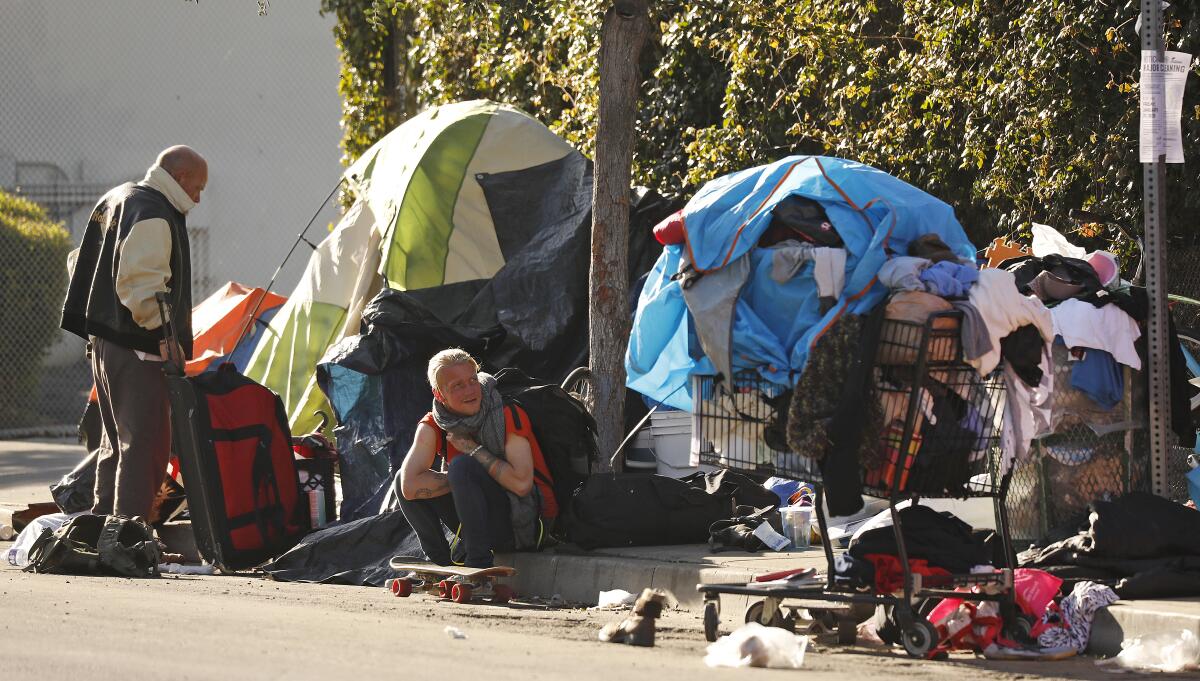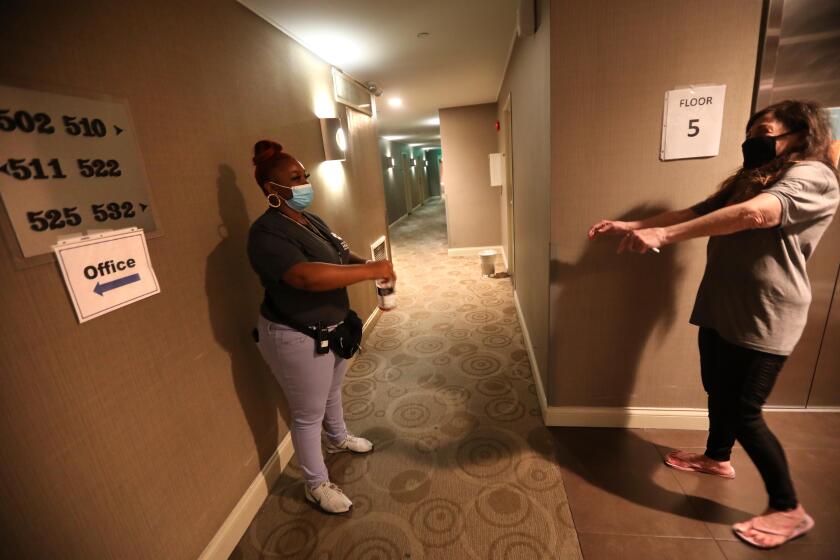U.S. appeals court says L.A. can’t seize and discard homeless people’s bulky property

SAN FRANCISCO — A federal appeals court on Thursday upheld an injunction preventing the city of Los Angeles from taking and destroying bulky items like mattresses and carts left by homeless people on public property.
In a 2-1 decision, a panel of the U.S. 9th Circuit Court of Appeals said the Los Angeles city ordinance violated the 4th Amendment, which protects people from unreasonable government seizure of their property, “even when that property is stored in public areas.”
“City employees have discarded a crate that a person used to secure his pet dog at night, carts that a person used to transport his possessions, wooden pallets and a cushion on which a person slept, and bins that a person used to keep her clothing dry — sometimes in the presence of their respective owners,” wrote 9th Circuit Judge Michelle T. Friedland, an Obama appointee.
Friedland, writing for the majority, said past court decisions have made it clear that the government may not destroy unabandoned personal property left in parks and on sidewalks and streets. “The city is free to draft a lawful version” of the ordinance, she wrote.
Judge Mark J. Bennett, a Trump appointee, dissented. He said Los Angeles all but conceded that destroying the property without notice was unconstitutional. That part of the ordinance should be stricken, he said, and a district judge should determine the constitutionality of the provision that just allows the city to remove property.
“The portion of the ordinance that allows seizure of that property without notice may well pass constitutional muster,” he wrote.
Citing written arguments by the League of California Cities, which backed Los Angeles in the case, Bennett said the homeless crisis was taking a painful toll on the public.
“City residents tell the city daily of their loss of access to public parks, threats to their safety, and the general degradation of their quality of life,” he said.
Project Roomkey, a state program backed by federal dollars, was intended to house homeless people during the pandemic. But it never got close to its goal.
Items frequently encountered on public property, he wrote, include boats, tubs, jacuzzis, sofas, industrial waste, automobile parts, bed frames, mattresses and various household appliances.
The Los Angeles ordinance reviewed by the court allowed for the removal of most items too large to fit into a 60-gallon container, the common size of household trash bins picked by the city. City workers, though, were not permitted to seize fully constructed tents, bicycles, walkers, crutches or wheelchairs.
The last official count, which took place before the COVID-19 pandemic, found about 41,000 homeless people within the L.A. city limits.
Thursday’s decision stems from an appeal of a preliminary injunction handed down in April by U.S. District Judge Dale S. Fischer, appointed by former President George W. Bush. She said the city could still seize items that were blocking sidewalks or posing a threat to public health and safety.
A group of homeless individuals and advocacy organizations brought the lawsuit after the Los Angeles City Council adopted the ordinance in 2016 on a 13-1 vote.
The city can appeal the ruling to a larger panel of the 9th Circuit.
More to Read
Sign up for Essential California
The most important California stories and recommendations in your inbox every morning.
You may occasionally receive promotional content from the Los Angeles Times.












